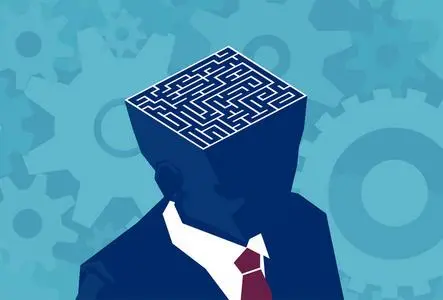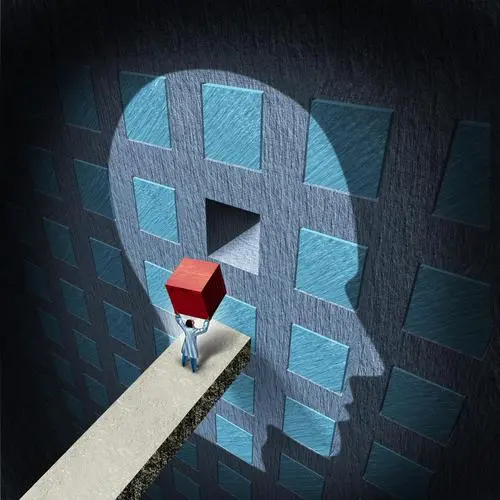In a colorful world, we are always facing the definition and evaluation of all parties. Whether individuals, groups, or countries, they will be observed, judged, and measured in the definition of others. These definitions may sometimes be full of misunderstandings and sometimes prejudice, but they truly exist in our lives, affecting our behavior and psychology. Therefore, we must take the "definition" seriously, distinguish between right and wrong, go to the truth, and help our improvement; at the same time, we must also be brave to shape ourselves through "customization", show the wind, and move forward in our own way.
First of all, we need to recognize the inevitableness of "defining". In social life, everyone is an object in the eyes of others. Whether it is family members, friends, colleagues, or strangers in society, they are observing and evaluating us to some extent. This observation and evaluation constitute the foundation of our definition. People define us through words and deeds, appearance, and occupational identity. These definitions in turn also affect our cognition and behavior choices of ourselves. For example, a student is defined as "excellent" by a teacher, then he may work harder to learn to live up to this title; on the contrary, if it is defined as "laziness", he may gradually lose his confidence and difficult to exert potential.
However, this definition is often mixed with subjectivity and one -sidedness, and may even have misunderstandings and prejudices. Therefore, we must learn to distinguish the authenticity of these definitions and do not blindly accept all evaluations. In the face of the definition of others, we must first maintain calmness and rationality, and are not controlled by superficial praise or criticism. You must learn to analyze the sources and basis of these definitions, and see if they have sufficient facts support and whether they are from an objective and fair perspective. For example, when a employee was criticized by his boss as "lack of innovation ability", he needed to reflect on his work performance to see if there is such a problem, instead of simply accepting or refuting. Through this clearly discerning attitude, we can absorb useful opinions and suggestions from others' definitions to avoid being trapped into misunderstandings and prejudice.
In the process of going to Wu Cun, we must not only soberly recognize the evaluation of others, but also learn to reflect and improve themselves. Behind each definition, some real problems and deficiencies may be hidden. These problems and shortcomings require us to face up and improve. For example, when a student is defined as "laziness", he may need to reflect on his learning attitude and habits, find out the shortcomings, and improve it. Only through this self -reflection and improvement can we continue to improve and become a better ourselves. It is not only the external evaluation of us, but also a mirror of our self -awareness. Through this mirror, we can see our own advantages and disadvantages more clearly to make targeted improvements.
At the same time, we must also be brave to shape ourselves through "customization" and show glory. Customizing is a proactive attitude, a re -recognition and positioning of self -identity and value. In the process, we need to strengthen our beliefs and goals and not be controlled by the definition of the outside world. In the face of various definitions and evaluations, we must have a clear self -awareness, know who we are, what kind of people want to be, and what kind of path. For example, a person defined as "ordinary" can completely break this definition through hard work and struggle to become the "excellent" in his mind. Customization is not only a recognition of self -worth, but also a positive planning and pursuit of future.

In order to achieve customization, we need to have the following quality and ability. The first is self -confidence. Self -confidence is the cornerstone of customization. Only by believing in your ability and value can you not be shaken when facing the definition of the outside world. The second is the ability to think independently. Independent thinking can help us find a path that really suits us in many definitions and evaluations, rather than blindly following others. Once again, courage and perseverance. The process of realizing customization is often full of challenges and difficulties, and we need to have a tough spirit and perseverance in order to overcome all obstacles and finally achieve our goals.
The realization of customization is not only an individual, but also the group and national level. How a group or country defines himself, how to view its own advantages and disadvantages, and how to plan the future development direction will have a profound impact on its overall development and progress. For example, if a nation can correctly understand its own history and culture and strengthen its own development path, it can occupy a favorable position in international competition and win more respect and recognition. Conversely, if a nation is always controlled by the outside world's prejudice and misunderstandings, and lack of self -confidence and self -recognition, it is difficult to achieve true development and progress.
In this process, education and culture plays a vital role. Education is not only the transmission of knowledge, but also the shape of values and worldview. Through education, we can help individuals and groups establish correct self -awareness and cultivate their ability to think independently and self -definition. Similarly, culture, as a nation's spiritual wealth, has a profound impact on self -identity and self -definition. Through the inheritance and innovation of traditional culture, we can redefine our cultural identity and value under new historical conditions to enhance the cohesion and centripetal force of the nation.

We must also realize that cooperation and communication are essential in the process of realizing customization. The self -definition of individuals requires the recognition and support of the group, and the national customization needs to be understood and respected by the international community. Only through cooperation and communication can we eliminate misunderstandings and prejudices in the process of realizing customization, and win more support and help. For example, how a country defines its own development path and strategic goals on the international stage not only requires its own efforts and struggles, but also needs cooperation and exchanges with other countries to achieve common development and progress through multilateral diplomacy and international cooperation.
In today's information explosion and globalization, we face unprecedented challenges and opportunities. The definition and evaluation of the outside world are more diversified and complicated, and the customs of individuals and groups have become more important and urgent. In the process, we need to maintain a sober mind, we must take "definition" seriously, learn from useful opinions and suggestions, but also be brave to shape ourselves through "customization" and show the wind. Only in this way can we find our own position in this colorful world and realize our own value and dreams.
In short, "definition" and "customization" are important issues that each person, each group, and each country must face in the process of growth and development. We must take the definition of the outside world seriously, distinguish between right and wrong, go to Wu Cunzhen, learn from useful opinions and suggestions, and help our own improvement; go ahead. Through this proactive attitude and efforts, we can find true value and significance in the era of complicated information and achieve self -improvement and social progress. Only in this way can we welcome the transformation and development of technology in this era of challenging and opportunities, continuously explore and pursue, and achieve higher goals and dreams.
图片源于网络